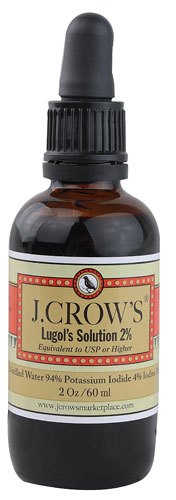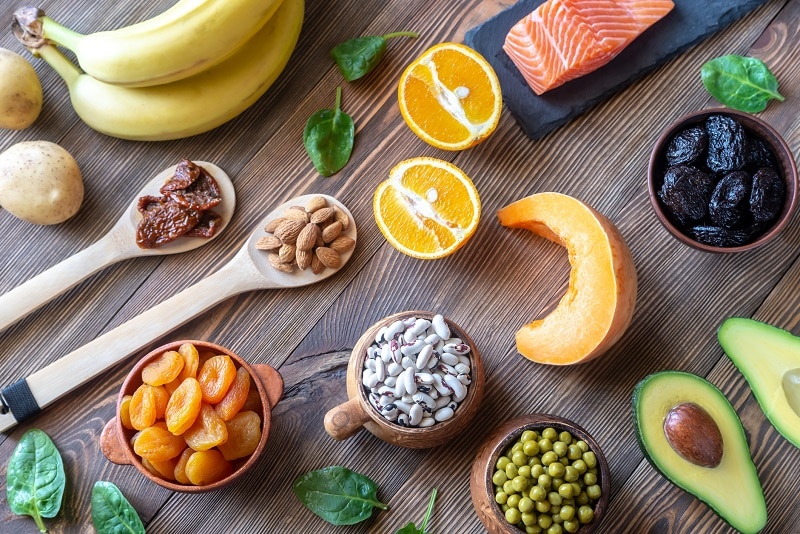Wondering if you're consuming enough potassium? Read on to find out how your intake measures up! Plus, check out our list of common foods that have even more potassium than bananas (you might find it, well, BANANAS!).
What is potassium?
Potassium is a mineral that is essential to human life and is considered one of the most important nutrients that is missing in the modern, highly-processed diet. It is needed for electrical impulses that govern muscle contraction, especially those of the heart. It is present in all body tissues as an electrolyte and works opposite other electrolytes to balance fluid and mineral levels. Potassium has a push/pull relationship with sodium, and together they regulate blood pressure. Most people consume too much sodium and too little potassium, which can contribute to elevated blood pressure. Decreasing sodium intake to the recommendation of 1,500-2,300 mg daily is often not enough to achieve a healthy blood pressure because potassium intake needs to be adequate as well.
The American Heart Association recommends those with a blood pressure over 120/80 mm Hg to increase potassium in their diet to at least 4,700 mg daily (this is the recommended daily intake, which is considered to be sufficient to meet the needs for 97-98% of healthy individuals).
There are special considerations, however, for those with kidney disease and for those taking certain medications like ACE-inhibitors which affect the body’s ability to excrete excess potassium. These individuals should consult their healthcare team before making diet changes. Barring any medical conditions, healthy individuals should aim to increase their fruit and vegetable consumption to at least five servings daily. Nine to 12 servings daily is considered optimal.
What foods have potassium?
Most people can recognize bananas as a good source of potassium, but many other fruits and vegetables and some animal foods have even greater amounts of this mineral. See below for a list of common foods with even more potassium than a banana!
Baked potato: 941 mg in 1 medium
Cooked beet greens: 654 mg in ½ cup
White beans: 595mg in ½ cup
Plain nonfat yogurt: 579 mg in 1 cup
Baked sweet potato: 542 mg in 1 medium
Wild Atlantic salmon: 534 mg in 3 oz.
Tomato juice: 527 in 1 cup
Fresh orange juice: 496 mg in 1 cup
Cooked swiss chard: 481 in ½ cup
Lima beans: 478mg in ½ cup
Great Northern beans: 460 mg in ½ cup
Halibut: 449 mg in 3 oz.
Acorn squash: 448 mg in ½ cup
Mackerel: 443-474 mg in 3 oz.
Chocolate milk, any fat percentage: 418-425 mg in 1 cup
Banana: 422 mg in 1 medium
How does your potassium intake measure up?
The average American eats only two servings of fruits and vegetables daily, including potatoes. Two servings of any of the high potassium foods above would barely scratch the surface of the 4,700 mg daily recommendation. Crunch a few of the numbers above and it becomes clear why at least five servings per day are needed to get enough potassium and other essential nutrients!
Start small by including one serving of fruits or vegetables at each meal and snack, then move to two servings per meal, and so on. Search the Vitacost blog for more resources and recipes to help you meet and exceed the recommendations for your best health!





